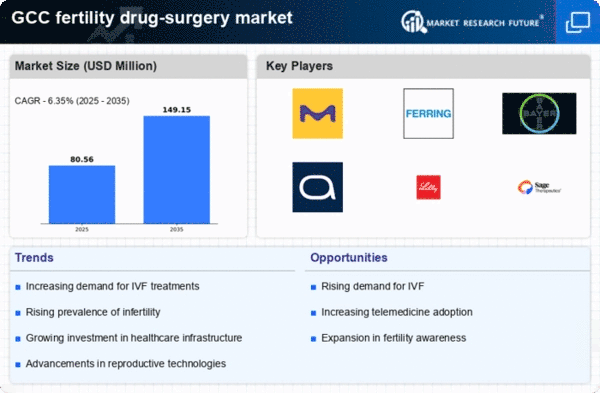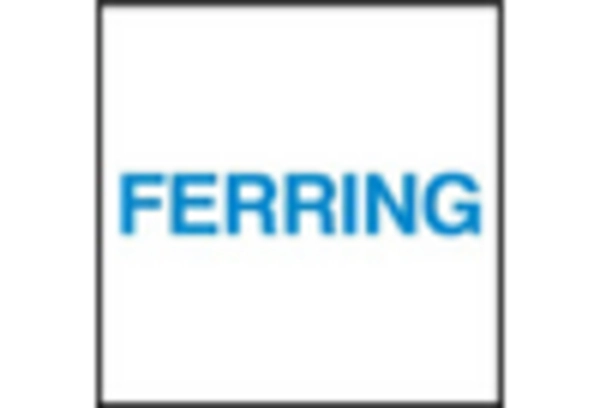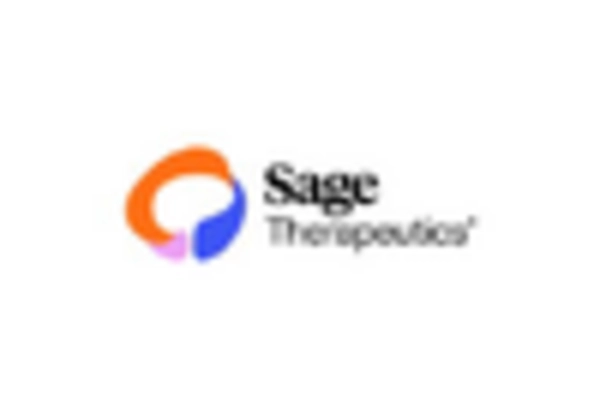Rising Incidence of Infertility
The rising incidence of infertility in the GCC is a critical factor propelling the fertility drug-surgery market. Various studies indicate that infertility rates have increased, with estimates suggesting that approximately 15% of couples in the region experience difficulties conceiving. Factors contributing to this rise include lifestyle changes, environmental influences, and health-related issues. As more couples face infertility challenges, the demand for fertility treatments, including drugs and surgical interventions, is expected to surge. This trend is likely to create a robust market environment, as healthcare providers respond to the increasing need for effective fertility solutions. Consequently, the fertility drug-surgery market is poised for growth as it addresses the needs of a growing population seeking assistance with reproductive health.
Advancements in Medical Technology
Advancements in medical technology are significantly influencing the fertility drug-surgery market. Innovations such as improved imaging techniques, minimally invasive surgical procedures, and enhanced drug formulations have transformed the landscape of fertility treatments. For example, the introduction of robotic-assisted surgeries has increased the success rates of procedures while reducing recovery times. Reports indicate that the success rate of in vitro fertilization (IVF) has improved by approximately 20% due to these technological advancements. As healthcare providers in the GCC adopt these cutting-edge technologies, the fertility drug-surgery market is likely to expand, attracting more patients seeking effective and efficient treatment options.
Government Initiatives and Support
Government initiatives aimed at improving reproductive health services in the GCC are playing a pivotal role in driving the fertility drug-surgery market. Various governments have introduced policies to subsidize fertility treatments, making them more accessible to the public. For instance, some countries in the region have allocated substantial budgets to support fertility clinics and research, which has led to a 25% increase in the number of assisted reproductive technology (ART) procedures performed annually. Additionally, public health campaigns promoting family planning and reproductive health have further encouraged individuals to seek fertility treatments. As these initiatives continue to evolve, they are expected to bolster the growth of the fertility drug-surgery market, ensuring that more couples have access to necessary treatments.
Cultural Shifts Towards Family Planning
Cultural shifts in the GCC towards family planning and reproductive health are emerging as a significant driver for the fertility drug-surgery market. As societal norms evolve, there is a growing acceptance of seeking medical assistance for fertility issues. This change is particularly evident among younger generations who prioritize family planning and are more open to discussing reproductive health. The fertility drug-surgery market is benefiting from this cultural transformation, as more individuals are willing to explore treatment options. Additionally, the increasing participation of women in the workforce has led to delayed childbearing, further driving the demand for fertility treatments. This trend suggests a sustained growth trajectory for the market as societal attitudes continue to shift.
Increasing Awareness of Fertility Issues
The rising awareness of fertility issues among the population in the GCC is a crucial driver for the fertility drug-surgery market. Educational campaigns and media coverage have contributed to a greater understanding of infertility, leading to more individuals seeking treatment. This heightened awareness is reflected in the increasing number of consultations with fertility specialists, which has reportedly risen by 30% over the past few years. As more people recognize the importance of addressing fertility challenges, the demand for both drug and surgical interventions is expected to grow. This trend is particularly pronounced among younger couples who are increasingly proactive about their reproductive health. Consequently, the fertility drug-surgery market is likely to experience significant growth as more individuals pursue available treatment options.
















